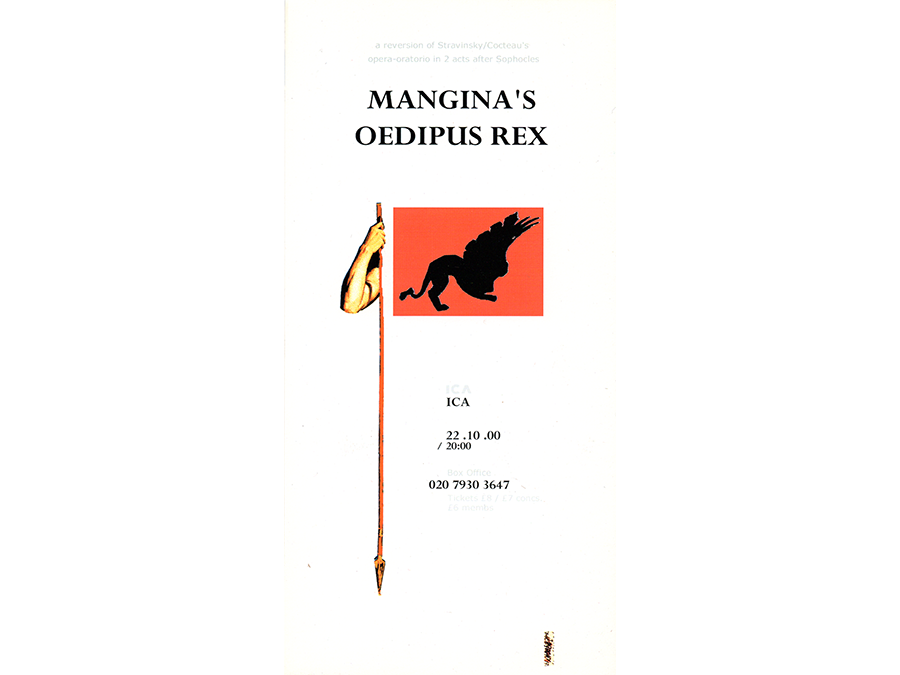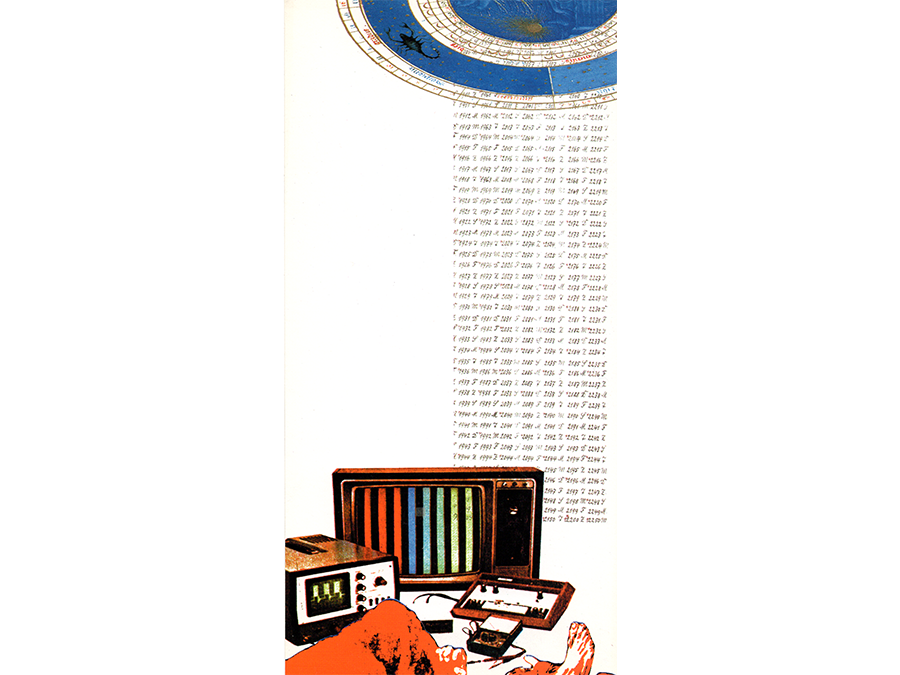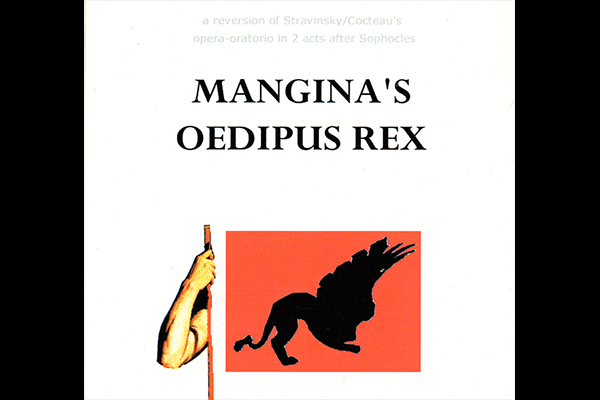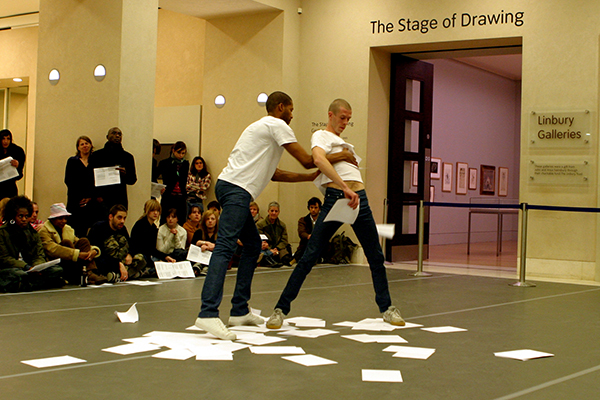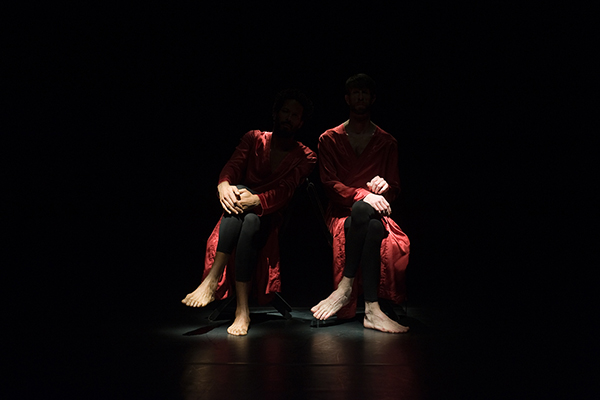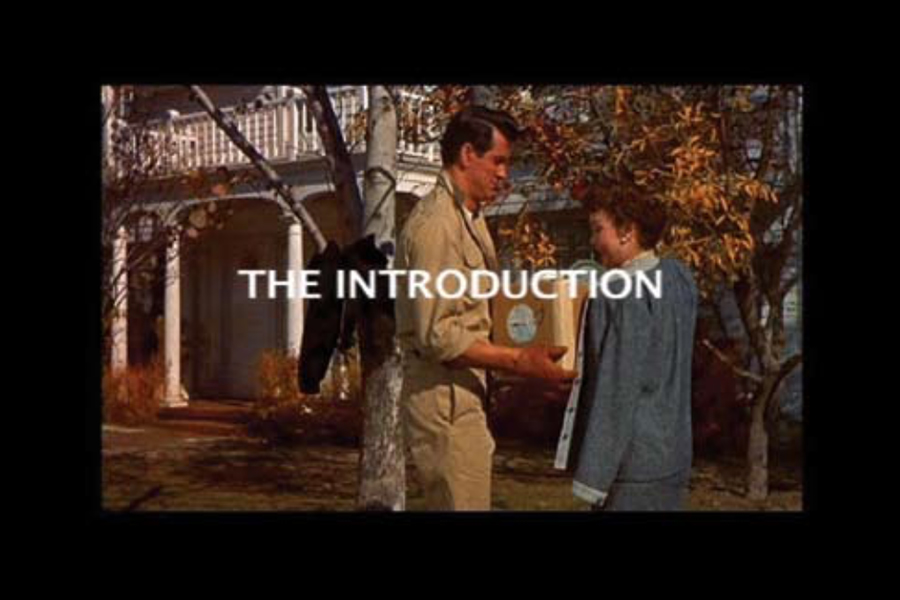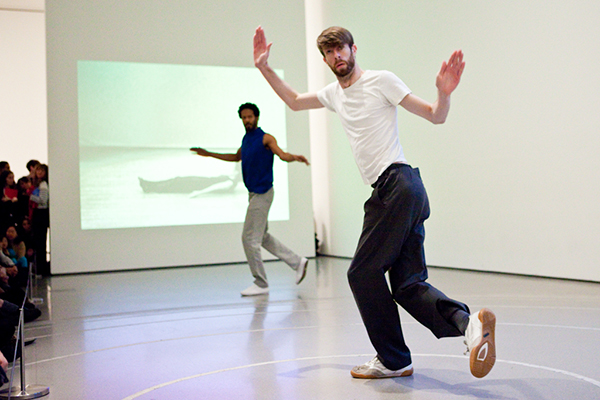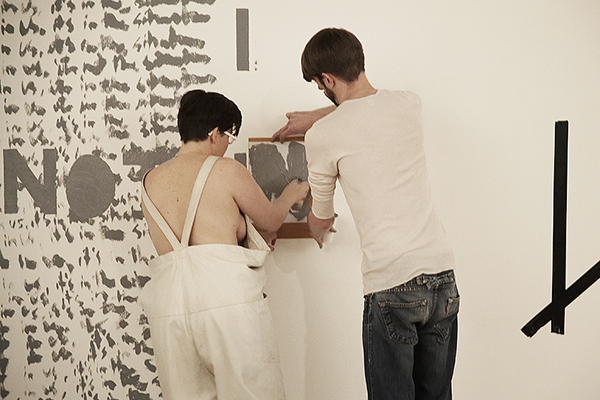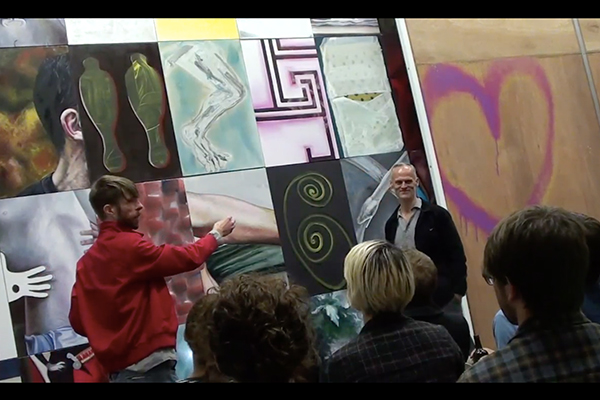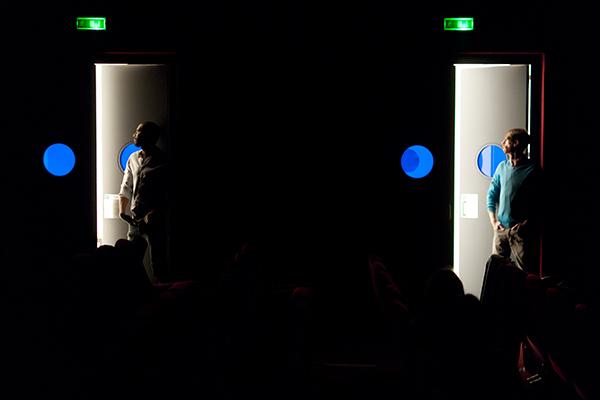Oedipus Rex, a concept symphony
with James Hollands, Ken Hollings & Andrew Walsh (working under collective name MANGINA)
Around the turn of the millenium, White collaborated intensively with a group of people centred on the Horse Hospital venue in London (where White and Hollands were working). In shifting configurations, and sometimes under the collective name MANGINA, they produced a number of experimental events including a performance called Der Rosenkavalier (as part of the the Churchill pub in June 2000) and also this ‘concept symphony’ based on Stravinsky, performed at the ICA.
No documentation of these events exists, but White describes Oedipus Rex in his long interview with Giles Bailey (published as Talker #1):
“… we staged a version or an inversion of Oedipus Rex, the Stravinsky opera oratorio which was at the ICA, which was again just a one night, one off thing. I’d started playing records in this really, kind of naive DJ was where you would play expressionist opera and Kylie Minogue at the same time. There was no manipulation, it was literally, put the needle on the records and let them play to the end at the same time. I’d done that a little bit in a club a few times and James Hollands was also making music but very much in the tradition of, kind of, experimental noise and industrial noise music and we brought together more people. Andrew Walsh who is a theatre designer then became a lighting designer and we had a screen and we’d made this video work that was on the screen and a writer called Ken Hollings wrote a text that appeared as surtitiles over the image like you get in an opera and the whole thing was structured around the Stravinsky opera oratorio…
“Different people did different things but it wasn’t one person directing and in fact the work depended on people not knowing what others had done. So we didn’t know the text that Ken had written so we made the video knowing what the text was and we only saw it come together on the day. So we actually never even really saw what it was. And I prepared a DJ set to play which I don’t think I told James what it was I was going to be playing and he did the same. He prepared a music set to play. So we knew what the ingredients were or what the layers were but not what the content was going to be. So it was about, I suppose, the liveness being this interaction of these things. And we also worked worked with a proper opera singer so the only bit we kept from the original opera was Jocasta’s aria. She only sings once on her own and we employed the black monolith telephone box from the Quebec [gay pub] so at the beginning of the piece she appeared and walked through this corridor of green light and sits in the telephone box and shuts the door. And at a certain point she comes out of the telephone box and she’s wearing a walkman with the soundtrack, with the musical accompaniment and sings Jocasta’s aria but with out any music at all. And then just sits on the stairs.”
Performed: 22 October 2000, ICA, London
Live performance
2000
